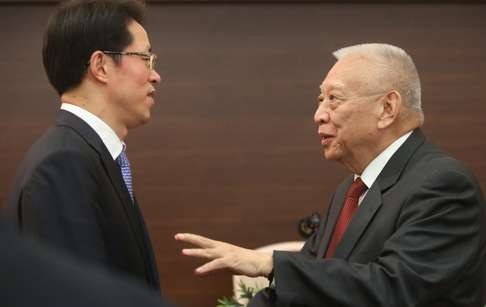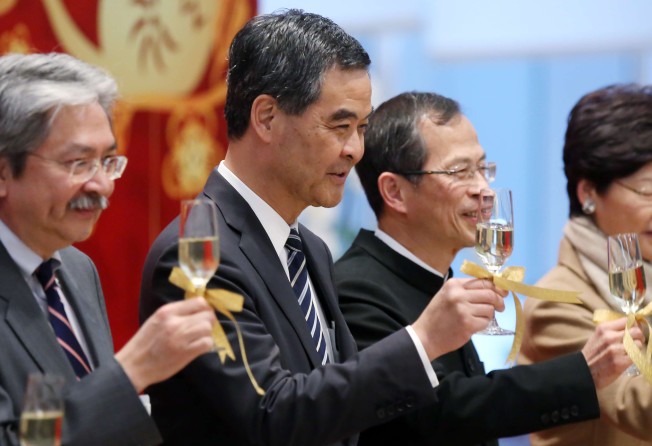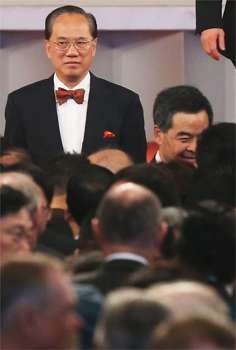
John Tsang or Jasper Tsang? Hongkongers mulling the 2017 chief executive election must bear in mind Machiavelli’s lion and fox
Sonny Lo says citizens would probably want their next chief executive to be both capable and an effective intermediary between the city and Beijing

Although Hong Kong’s chief executive election will take place next March, much of the local media is already hunting for potential candidates. Recent remarks by outgoing Legislative Council president Jasper Tsang Yok-sing and Financial Secretary John Tsang Chun-wah, indicating they may enter the race, have sparked excited debate.
What kind of chief executive do Hong Kong people want?
First, they must ask themselves whether, in Niccolo Machiavelli’s terms, they would prefer a leader who is like a lion or a fox, or both. Machiavelli said: “The lion cannot protect himself from traps, and the fox cannot defend himself from wolves. One must therefore be a fox to recognise traps, and a lion to frighten wolves.”
In general, people want their ideal chief executive to have many different qualities. First, he or she must be competent and capable; that is, more lion than fox. But he or she also needs to be fox-like in being an effective intermediary between the central government and the people of Hong Kong. Thus, an “ideal” leader should be both a lion and a fox. And, as a safeguard, direct election of the chief executive should be implemented as soon as possible, to provide the necessary checks and balances for whoever takes charge.

The first chief executive, Tung Chee-hwa, was perhaps neither a lion nor a fox. As a former businessman, Tung tried to implement various reforms to protect the interests of the people. Due to difficult external circumstances, such as the Asian financial crisis, the sudden occurrence of severe acute respiratory syndrome and the growing expectations of citizens, he became increasingly less popular.
The second chief executive, Donald Tsang Yam-kuen, appeared to be a lion. He had significant experience, in the minds of those members of the Election Committee who supported him. However, he appeared to lack the “fox” element, given the controversies that dogged his second term.

So, what about Jasper Tsang and John Tsang? Do they have the attributes of both a lion and a fox?
Jasper Tsang has climbed the political ladder diligently through both direct election and support from the central government. He appears to be more of a fox. His ability to govern remains in question, however, as personal qualities alone will not easily bring about effective governance and a high degree of popularity.
John Tsang has created a public image of being a competent and capable administrator, but whether he would be a fox is uncertain. Critics have argued that his approach to financial administration remains too conservative and prudent. This is especially so among pro-welfare critics, who expect the government to be more supportive of a universal pension system in the coming years.
Thus, it would seem that ensuring any elected chief executive is both a lion and a fox is very difficult. So, what of the final quality of an ideal chief executive, namely, that he or she is directly elected?
Unfortunately, after the government’s political reform bill for the chief executive election was rejected by the Legislative Council in June 2015, Hong Kong’s democratic development has reached a cul-de-sac. Any discussion on the issue will have to return to the same old debate – the parameters of political reform that were set by the Standing Committee of the National People’s Congress on August 31, 2014.
While the media is focusing on the personal attributes of Hong Kong’s next leader, democratisation of the chief executive election remains in limbo. Thus, how candidates present their platform and ideas to break the deadlock in selecting future chief executives will be politically significant.
Sonny Lo is head of the department of social sciences at the Education University of Hong Kong